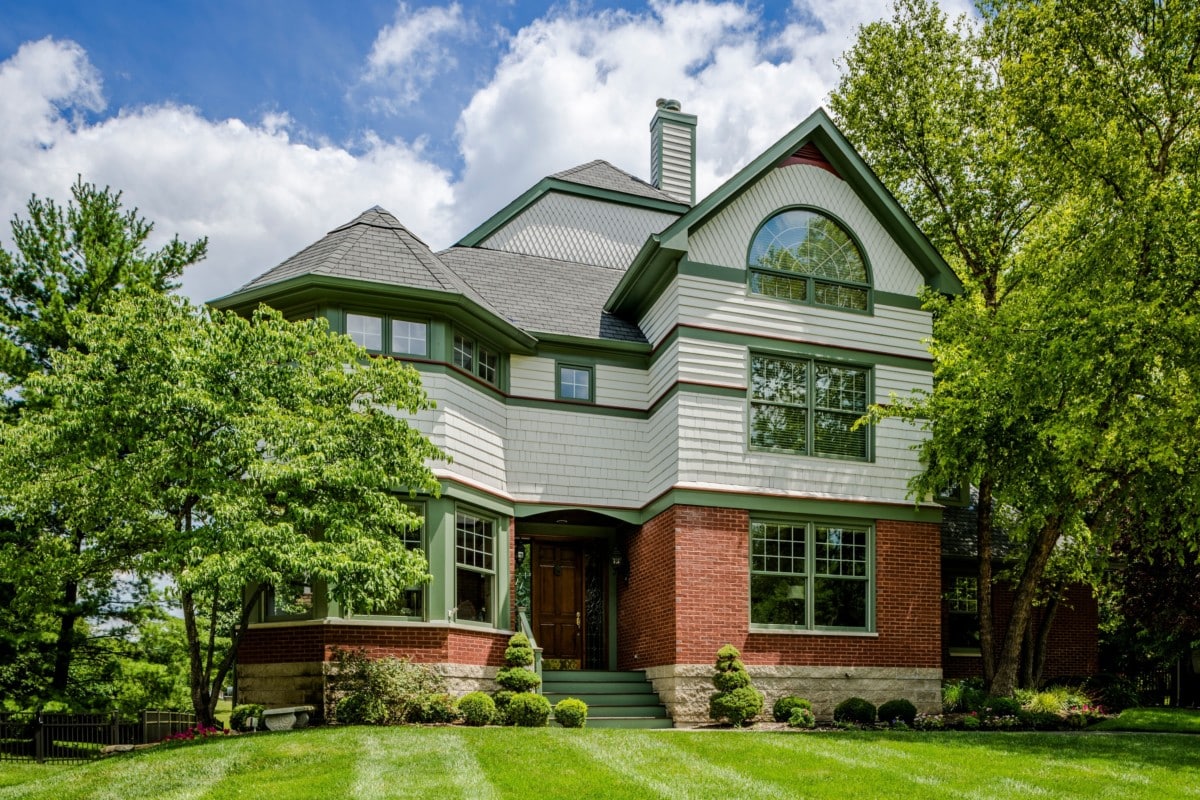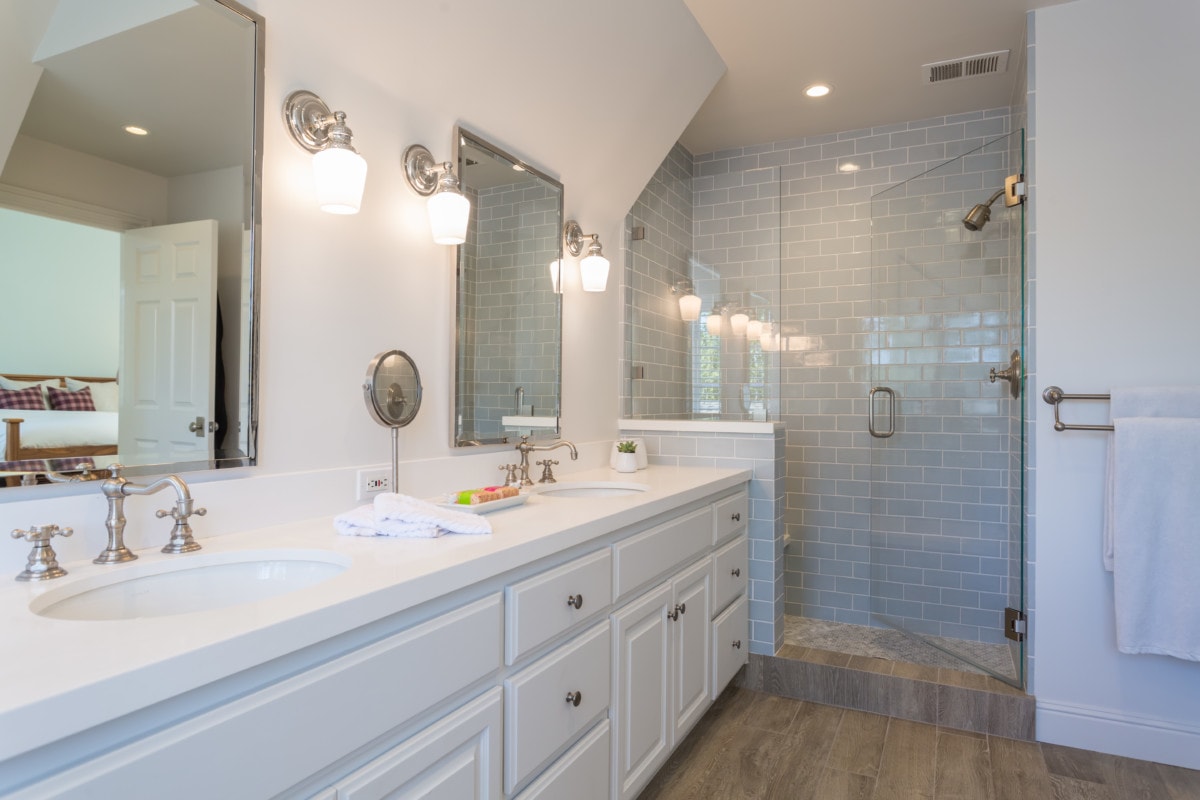DIY (do it yourself) is a common approach to home repairs for a variety of reasons, from budget to perceived simplicity. For those preparing to sell their home, pinching pennies can be a common motivation for tackling fixes without professional involvement. In some cases, DIY solutions are a great way to save time and money with very little risk, but at times, neglecting the abilities of a pro can cause costly problems.

Hire a Professional for These Home Repairs
Not all home repairs are made equal. Basic home projects, like putting up wallpaper, are relatively low risk and don’t pose the potential for big problems down the line. However, more substantial projects can require a level of expertise above and beyond what the average homeowner can accomplish. When not handled properly, these kinds of DIY fixes can result in serious damage that could cost a small fortune to fix. That’s why we created a list of projects that should be handled by the professionals, rather than doing it yourself.
1. Electrical Work
Dealing with any notable wiring issues throughout a home is best left in the hands of an electrician. While something simple, like replacing a lightbulb, is certainly possible without a pro, anything larger requires someone trained in electrical systems.
Accessing electrical boxes, installing new lighting fixtures, replacing wiring, adding new wiring, or anything else more complicated has the potential to harm both you and your property without proper oversight. Accidents with electrical work can cause electrocution or start fires, putting both your health and your home at risk. Without the expertise of an electrician, there’s no way to know whether the tutorials you’re reading or viewing online are appropriate for your property.
2. Plumbing
Plumbing, like electrical work, can be tricky to get right for those without formal training. It’s not unusual for DIY home repairs to cause burst pipes or leaks, opening the door for potential water damage to your home. When these leaks or broken pipes are found within walls or difficult to detect it can become a serious issue.
Before trying to do something like replacing a pipe or installing new fixtures, contact a plumber to make sure your repairs are appropriate and up to code. It’s cheaper to hire a professional for small tasks from the start than to bring in a plumber once a problem arises. Installing a new faucet is much cheaper than to both install a new faucet and fix the problems caused by a DIY installation gone awry.
3. Full Bathroom Remodels
Bathroom remodeling projects often seem easy, but can actually entail much more than you may think. Oftentimes, these projects can require elements of other kinds of home repairs, like plumbing and electrical work.
Tackling a bathroom from top to bottom can be an excellent way to boost your home’s value before listing it, but approaching a remodel in the wrong way can be disastrous. An error in plumbing, cabinet and counter installation, wiring, or anything else could be more costly than beneficial. When you want your bathroom to look – and function – it’s very best, you will want help from a licensed contractor or remodeler who can adhere to building codes and prevent major problems.

4. Foundation and Crawl Space Repairs
Little foundation fixes or crawl space repairs may look simple on the surface, but these kinds of projects can be serious endeavors and require the training and tools the average homeowner doesn’t have. This is particularly true with foundation repairs, especially if you live in an area with a wet climate like Seattle, WA. Failing to address signs of foundation damage can threaten the stability of your entire home. Additionally, an improper DIY home repair can yield more costly treatments down the road and leave room for much more serious damage.
Identifying and fixing foundation problems can require anything from construction equipment to hydraulic lifts. Instead of taking the easy way out, partner with a professional to make sure these serious repairs are made the right way.
5. Roof Replacement or Repairs
Roofing is both challenging and potentially dangerous, making this a poor choice for a DIY project. Replacing shingles or repairing structural issues can be tempting – roofing prices can be steep – but these kinds of tasks are easy to do incorrectly. When shingles aren’t placed properly, insulation is lacking, chimneys aren’t adequately navigated, and safety precautions aren’t taken, big problems can happen.
Climbing around on the top of your house with tools and heavy materials is a home repair project best left for a professional. The risk for improper insulation, wrong shingle placement, or even slips and falls makes roofing jobs far too challenging for a standard homeowner. Also, having a professional step in for a big project like this will ensure everything is done well and in a timely manner.
6. Replacing Siding
The siding on your home looks deceptively simple, but replacing a whole house worth of siding can be a seriously challenging home repair. This task can take days on end, and placing siding straight and even is a much harder project than it may appear to be on the surface.
It’s also important to remember that siding is more than an aesthetic feature. Siding that’s installed incorrectly can cause water and weather damage, driving increased temperature control costs, the likelihood of pest damage, and potential structural issues. Simply put, if you are planning to replace your siding to increase your home value, make sure a professional is involved in the process.
There’s a lot to be said for the peace of mind that comes from partnering with an electrician, plumber, roofer, remodeling company, or contractor. Before charging ahead with a DIY home repair, make sure you understand the scope of the repairs you are trying to make, any risks, and the potential value of professional involvement.
The post 6 DIY Home Repair Mistakes to Avoid Before Selling Your House appeared first on Redfin | Real Estate Tips for Home Buying, Selling & More.
